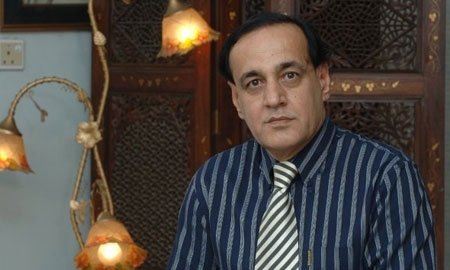Climate change is discussed a lot, conferences are held, and decisions are made, but work is not like that. The main reason for this is confusion in words and deeds. Desired success in any job is impossible if the moral backbone is wrong. We live in such a reality now.
Experts have advised us to take the initiative to adapt to this kind of weather and stay healthy. Understandably, a new responsibility has come upon the citizens. Climate experts have said that temperatures in Southeast Asia have reached unprecedented levels.
Nature’s wrath has been flooding us all year round in the form of climate crises. Whether we see it or not, we avoid it or not, and we care for it or not. Every year, climate change gets worse. The number of victims is breaking records aligned with crisis parameters. Not everyone suffers from the impacts, but the poor get limited chances to bounce back.
Climate shocks and extreme weather events such as cyclones, flash floods, heatwaves, droughts, untimely heavy rains, and catastrophic storms cause numerous dents in all lives. The impacts, ranging from rising sea levels to agricultural losses and many others, result in fatalities, food insecurities, landslides, displacements, and countless health hazards that do greater damage, especially to the poor.
We know how the health risk increases, especially for the elderly, with the sudden temperature rise. Pakistan has seen deaths of people aged 65 and up during the past years. These deaths and ominous impacts of climate change repeat every year with droughts and floods.
The victims are mostly our poor populace, who cannot afford an icy drink or air-conditioned facilities during heat waves. Their homes are not built aerodynamically with robust structural design to withstand and endure the extreme forces exerted by high winds, heavy rainfall, flying debris, and flash floods. Moreover, they are not able to afford imported food items if a harvest is lost or damaged.
Moreover, due to these unfortunate inabilities, they suffer the unjust consequences derived from the transgressions of the privileged. They will have more deaths, more casualties, more losses, more food insecurities, and most importantly, endless suffering.
It sounds frustrating, but the World Bank estimates that the world will see 21 million more deaths by 2050 due to the impacts of climate change on health, as health issues come from every event that occurs. So, who are these 21 million people? Most of them are seemingly poor from around the world. Not only this but if the climate crises continue, another 44 million people could be pushed into extreme poverty by 2030, subsequently increasing the death toll.
The world already knows the way out of this. Authorities promise funds and protections to find tailored solutions locally and devise methods for quick implementation. However, the irony is that what is promised stays promised for long, and the suffering continues.
As we are an extreme disaster-risk-prone country in the world, we may consider that the decisions that we are making today will affect the generations to come. Therefore, it is a joint responsibility of all of us.
Weather sometimes teaches people to think. In extreme heat, people are now thinking about the climate, thinking about wildfires. We know that the great creator has created the world to be human-friendly. However, this world is gradually becoming unfit for human habitation. One reason for this is wrong politics the other is climate change. Human hands are behind both.
Industrialized countries are responsible for global warming, and climate change. This responsibility is to pay compensation, this responsibility is to moderate the use of fuel. It remains to be seen how much responsibility they perform.








